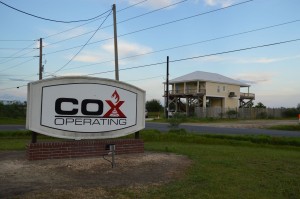From an Article of the Oil & Gas Watch Newsletter, June 21, 2023
GRAND ISLE, Louisiana – This barrier island reaches like a spindly crab leg more than 50 miles out into the Mississippi River Delta south of New Orleans, with a row of fishing cabins perched atop 10-foot pilings and shrimp boats trawling offshore near oil platforms in the Gulf of Mexico.
The delicate lacework of wetlands that produce those shrimp have long been under assault from climate change and oil and gas development. But now the wetlands here are facing a new threat: a federally-funded project to combat climate change.
A Dallas-based called company called Cox Oil recently received federal funding to help build a 110-mile carbon dioxide pipeline from petrochemical plants in Geismar, Louisiana, to Grand Isle. The idea is to bury the chemical factory pollution – up to 300 million metric tons of carbon dioxide captured from smokestacks, then cooled into a liquid state – in depleted oil wells beneath the floor of the Gulf of Mexico offshore of this barrier island.
The so-called “Louisiana Offshore CO2 Hub” project received $8.4 million from the Biden Administration on May 22. An added financial boost for Cox – a struggling company operating in Chapter 11 bankruptcy — is that it and its partners will be able to use the liquid carbon to blast more oil and gas out of the ground, a process called “enhanced oil recovery,” a Cox presentation on the project explains.
The carbon storage project is one of at least 27 proposed in Louisiana – and more than 100 nationally – because of billions of dollars in federal carbon capture subsidies that were included as part of the Inflation Reduction Act signed by President Biden.

